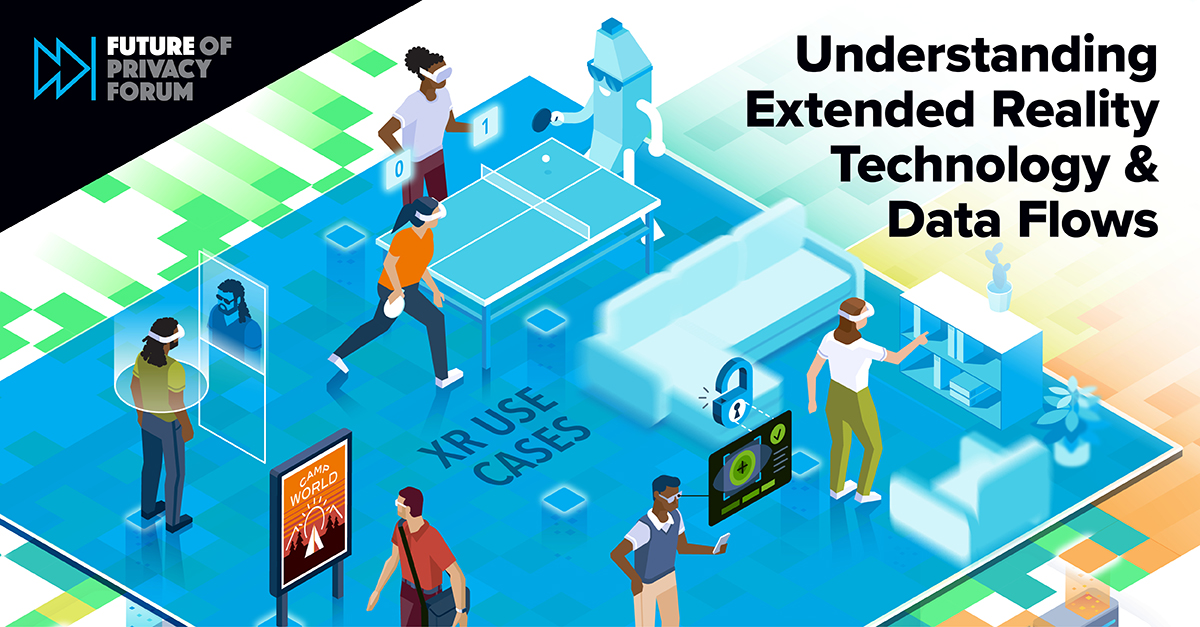Annual DC Privacy Forum: Convening Top Voices in Governance in the Digital Age
FPF hosted its second annual DC Privacy Forum: Governance for Digital Leadership and Innovation on Wednesday, June 11. Staying true to the theme, this year’s forum convened key government, civil society, academic, and corporate privacy leaders for a day of critical discussions on privacy and AI policy. Gathering an audience of over 250 leaders from […]
FPF Experts Take The Stage at the 2025 IAPP Global Privacy Summit
By FPF Communications Intern Celeste Valentino Earlier this month, FPF participated at the IAPP’s annual Global Privacy Summit (GPS) at the Convention Center in Washington, D.C. The Summit convened top privacy professionals for a week of expert workshops, engaging panel discussions, and exciting networking opportunities on issues ranging from understanding U.S. state and global privacy […]
U.S. Legislative Trends in AI-Generated Content: 2024 and Beyond
Standing in front of the U.S. flag and dressed as Uncle Sam, Taylor Swift proudly proclaims that you should vote for Joe Biden for President. She then wants you to vote for Donald Trump in a nearly identical image circulated by former President Trump himself. Both the images, and the purported sentiments, are fabricated, the […]
Understanding Extended Reality Technology & Data Flows: Privacy and Data Protection Risks and Mitigation Strategies
This post is the second in a two-part series. Click here for FPF’s XR infographic. The first post in this series focuses on the key functions that XR devices may feature, and analyzes the kinds of sensors, data types, data processing, and transfers to other parties that power these functions. I. Introduction Today’s virtual (VR), […]
Understanding Extended Reality Technology & Data Flows: XR Functions
This post is the first in a two-part series on extended reality (XR) technology, providing an overview of the technology and associated privacy and data protection risks. Click here for FPF’s infographic, “Understanding Extended Reality Technology & Data Flows.” I. Introduction Today’s virtual (VR), mixed (MR), and augmented (AR) reality environments, collectively known as extended […]
New Infographic Highlights XR Technology Data Flows and Privacy Risks
As businesses increasingly develop and adopt extended reality (XR) technologies, including virtual (VR), mixed (MR), and augmented (AR) reality, the urgency to consider potential privacy and data protection risks to users and bystanders grows. Lawmakers, regulators, and other experts are increasingly interested in how XR technologies work, what data protection risks they pose, and what […]
BCI Technical and Policy Recommendations to Mitigate Privacy Risks
This is the final post of a four-part series on Brain-Computer Interfaces (BCIs), providing an overview of the technology, use cases, privacy risks, and proposed recommendations for promoting privacy and mitigating risks associated with BCIs. Click here for FPF and IBM’s full report: Privacy and the Connected Mind. In case you missed them, read the […]
BCI Commercial and Government Use: Gaming, Education, Employment, and More
This post is the third in a four-part series on Brain-Computer Interfaces (BCIs), providing an overview of the technology, use cases, privacy risks, and proposed recommendations for promoting privacy and mitigating risks associated with BCIs. Click here for FPF and IBM’s full report: Privacy and the Connected Mind. In case you missed them, read the […]
BCIs & Data Protection in Healthcare: Data Flows, Risks, and Regulations
This post is the second in a four-part series on Brain-Computer Interfaces (BCIs), providing an overview of the technology, use cases, privacy risks, and proposed recommendations for promoting privacy and mitigating risks associated with BCIs. Click here for FPF and IBM’s full report: Privacy and the Connected Mind. In case you missed it, read the […]
Brain-Computer Interfaces & Data Protection: Understanding the Technology and Data Flows
This post is the first in a four-part series on Brain-Computer Interfaces (BCIs), providing an overview of the technology, use cases, privacy risks, and proposed recommendations for promoting privacy and mitigating risks associated with BCIs. Click here for FPF and IBM’s full report: Privacy and the Connected Mind. Additionally, FPF-curated resources, including policy & regulatory […]






